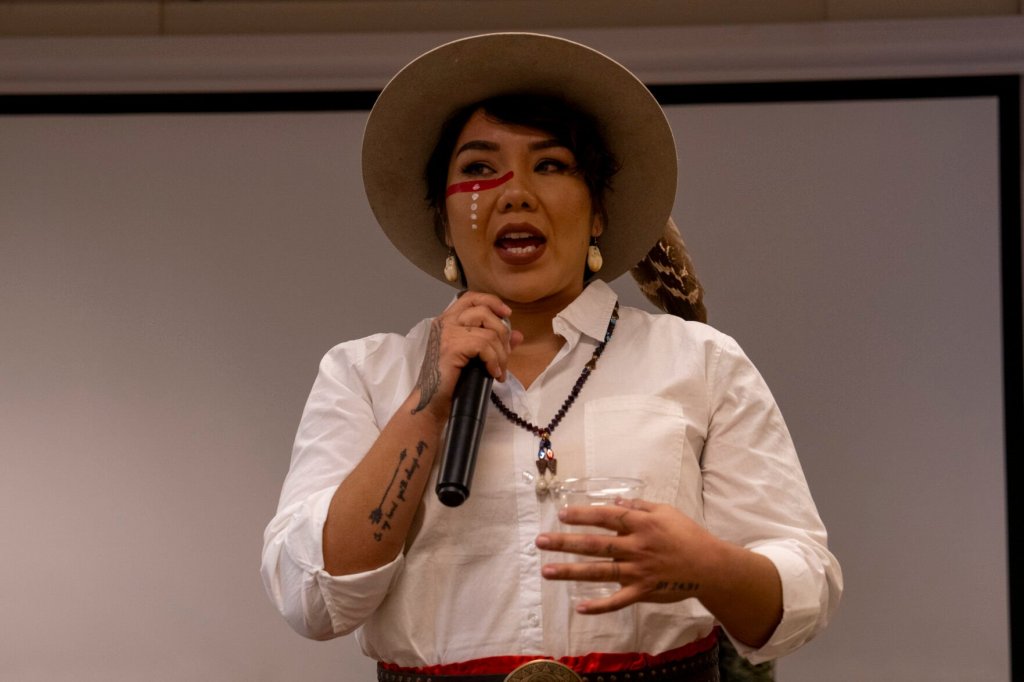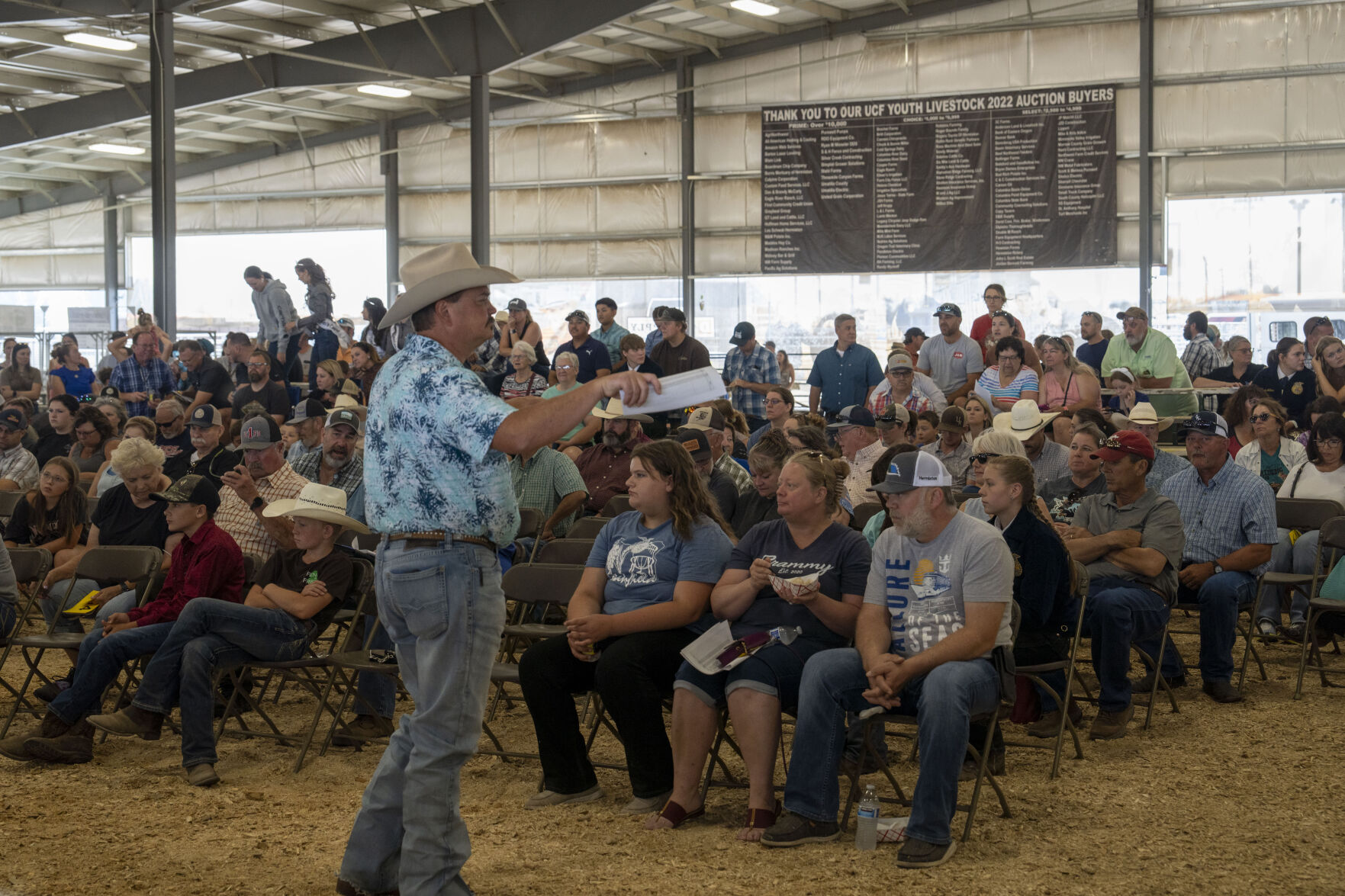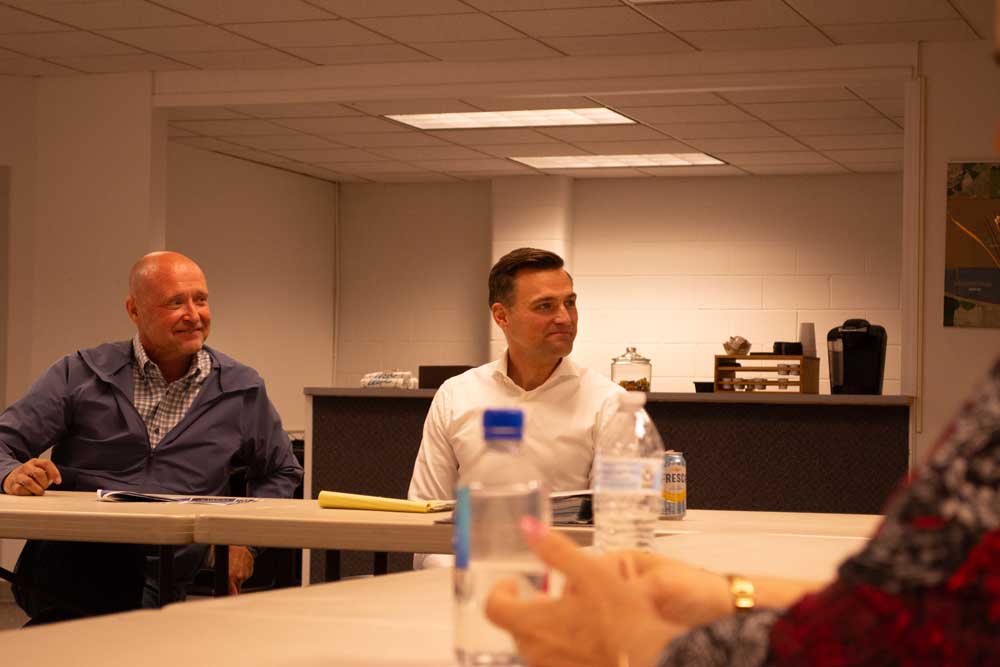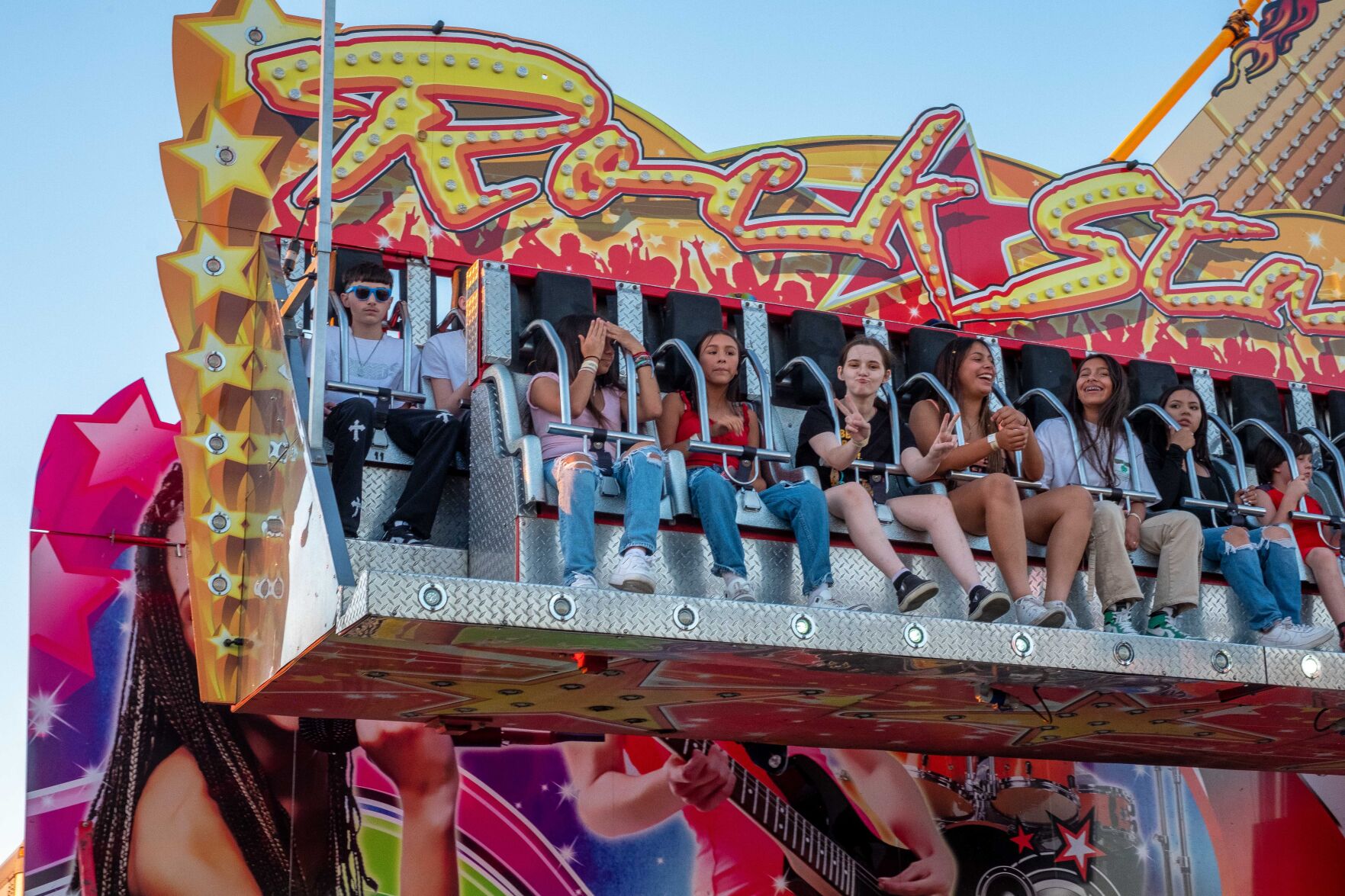EO Forum shines light on continuing issue of murdered and missing Indigenous people
Published 6:00 am Friday, November 17, 2023

- Kola Shippentower-Thompson, founder of Wisawca, a personal safety consulting organization, discusses why people should pay attention Nov. 14, 2023, to the pervasive issue of murdered and missing Indigenous women and relatives during the Eastern Oregon Forum in Pendleton.
PENDLETON — “The United States has already demonstrated that we are not important as tribal people,” said Desireé Coyote, a speaker at the Eastern Oregon Forum on murdered and missing Indigenous people on Tuesday, Nov. 14. “They continue to demonstrate that.”
Trending
Coyote and another speaker, Kola Shippentower-Thompson, discussed the topic during a panel held on the Blue Mountain Community College campus as part of the forum series.
The series consists of four seminars and discussions about issues in the region or nation. The Nov. 14 event was the second, after a panel on banned books in October. The next will take place in February.
“It’s basically an opportunity for people to get educated on a certain topic,” said Michele Madril, director of communications at InterMountain Education Service District, one of the forum’s sponsors.
Trending
Murdered and missing Indigenous women are being discussed more and more nationally. Even the United States Bureau of Indian Affairs website offers information and says, “For decades, Native American and Alaska Native communities have struggled with high rates of assault, abduction, and murder of women.”
Coyote and Shippentower-Thompson are both members of the Confederated Tribes of the Umatilla Indian Reservation, offering a local perspective on an issue that can feel distant. Coyote is the CTUIR Family Violence Services Program manager, which provides support services to people who have experienced abuse. Shippentower-Thompson founded the Wisawca Project, a personal safety consulting organization focused on empowering people to advocate for their own safety.
Both women are survivors of abuse, and they are not alone.
More than 84% of American Indian and Alaska Native women have experienced violence in their lifetime, according to a report by André Rosay, Ph.D., on a National Institute of Justice-funded study from 2016, whether that be sexual or physical violence, stalking or psychological aggression by an intimate partner.
“Overall,” Rosay wrote, “more than 1.5 million American Indian and Alaska Native women have experienced violence in their lifetime.”
More than half of them have experienced sexual violence, physical violence or psychological aggression, according to the study, and just under 50% have experienced stalking.
“While it is estimated that rates of violence on reservation can be up to 10 times higher than national averages,” says the Bureau of Indian Affairs website, “research is missing on rates of murder violence among American Indian and Alaska Native women living in urban areas.”
Still, the research that exists does give some idea, and broadens the focus to include men, too.
The trend for Indigenous women is similar for men. Around 82% of American Indian and Alaska Native men have experienced some form of violence in their lifetime, the study says. The most frequent type was psychological aggression from a partner, with 73% having faced it. Around 43% of men have experienced physical violence and 27.5% have experienced sexual violence in their lifetimes.
All in all, that means around 1.4 million American Indian and Alaska Native men have experienced some kind of violence in their lifetime.
Coyote’s program with CTUIR offers direct services to people in rural and tribal communities who experience assault or abuse, hoping to address some of the trauma that comes from these experiences.
“If the system is not able to assist in a meaningful way,” Coyote said during the event, “the majority of the victims are not going to come forward.”
Coyote said afterward that systems need to be more inclusive of tribal members and other people of color, and they’re not very inclusive right now.
One of the other things that needs to happen, she said, is that men need to hold other men accountable. Women can’t be the only people advocating for women.
But Shippentower-Thompson isn’t sure that kind of change can or will happen.
During the forum, she asked audience members to consider what they can do about this, encouraging them to consider actionable steps in their own lives. A few ideas were creating more spaces for discussions and education about this and getting to know and checking on neighbors so that you can tell if something is wrong.
But in general, she said, “We’re the ones that are going to have to continually pick up this fight and keep going.”
Shippentower-Thompson said even if tribal voices are the loudest on this issue, it’s not only tribal members who are affected by it.
For example, part of her work is focused on how personal safety plans play a role in keeping law enforcement accountable. Additionally, it is Indigenous communities at the forefront of climate action, aiming to keep water clean for everyone.
“It’s hard for white people to fight, and that’s fine. I get it,” she said with a shrug. “For Indian people, it’s what we do.”
Even when it’s tiring or stressful, she said, she keeps going because it matters to her.
“I don’t think that there’s any sort of way you can ever force someone to care about your issues,” Shippentower-Thompson said after the forum.
Still, she said that she hopes her participation in these discussions can help increase awareness and action in white communities, especially, where people are less aware of the extensive problem and danger.
“If I can reach at least one person, I feel like I’ve done my job,” Shippentower-Thompson said. “And I think we did that tonight.”









